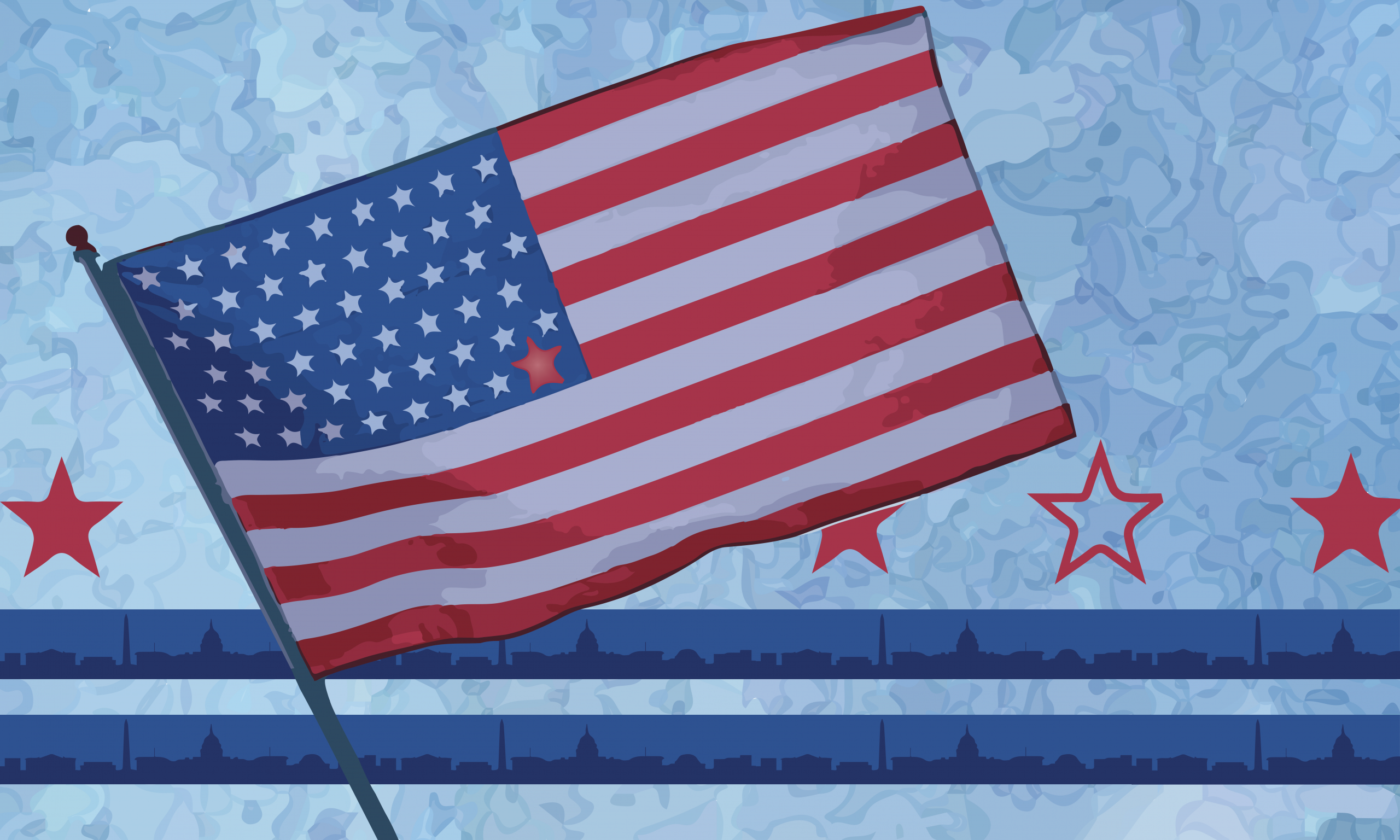D.C.’s local government, tasked with everything from housing policy to making sure the bus comes on time, can be just as impactful on students’ lives as what happens on Capitol Hill. Understanding our local government is a way for students to become more familiar with what daily life looks like in the District, beyond Georgetown’s front gates.
Like the federal government, D.C.’s government has three branches. The mayor, currently Muriel Bowser, is the Chief Executive; the City Council acts as a legislature; and the judiciary is composed of the D.C. Court of Appeals and the Superior Court. District residents elect the mayor and council members, but because D.C. is not a state, judges for D.C. courts are appointed by the U.S. President.
The Council is responsible for legislation such as enacting the District’s annual budget, which the mayor either approves or vetoes. After months of debate over the budget for 2025, the final budget law passed unanimously in the Council, but Mayor Bowser refused to sign it. Bowser cited disagreements with the allocation of funds to individual schools rather than all of D.C. public schools, as well as the increase in property taxes to cover additional funding to housing programs. The move was mostly symbolic; since Bowser never officially vetoed the bill, the budget still took effect on July 16, 2024 after receiving congressional approval.
Budget negotiations for Fiscal Year 2026 will begin in February 2025. The Mayor’s Office will host several Budget Engagement Forums, beginning on Monday, Feb. 24, where residents can voice their priorities and discuss ideas about how the District should allocate the budget. Mayor Bowser’s final 2026 budget proposal will be issued on April 2, 2025.
The Council is also an opportunity for each of D.C.’s wards to have representation in the legislative process. The District is divided into eight wards—Georgetown is in Ward 2—and each one has a representative in the Council. There are 13 total members in the Council, including the eight from each ward, four at-large members who are elected to represent D.C. as a whole, and the chairperson, who is currently Phil Mendelson.
Councilmember Brooke Pinto (LAW ’17)—a Georgetown Law alum—represents Ward 2, and is the youngest person to be elected to the Council. Pinto is the chair of the Committee on the Judiciary and Public Safety, and introduced the Secure D.C. omnibus crime bill, which heightened punishments for minor crimes and required public safety offices like the 911 call center to share data with the public or the local government.
The Council has also had a recent scandal with the arrest of Ward 8 Councilmember Trayon White on federal bribery charges on Aug. 19, 2024. The FBI alleged that White accepted tens of thousands of dollars in bribes from local organizations and business owners to pressure other D.C. government employees to extend companies’ government contracts or support programs they were favorable to. After the Council ran an internal investigation on White’s conduct, he was officially removed from office on Feb. 4 over the bribery charges.
Beyond their council member, each ward also has several Advisory Neighborhood Commissions (ANCs). ANC commissioners hear residents’ concerns about issues affecting their neighborhood and then present those issues to other D.C. government bodies. Unlike council members, ANC commissioners do not have power to make laws, but they are able to receive direct feedback from people in their neighborhoods on how existing policies are affecting them, or changes they would like to see. Some of those problems include mundane residential matters like trash collection and parking regulations, but others can get contentious, like an ongoing zoning battle over the future of Call Your Mother’s Georgetown location that could mean the beloved bagel store shutting its doors.
Georgetown sits in ANC 2E, and anyone can attend ANC meetings or access recordings on the ANC’s website. Commissioners serve a term of two years and are not paid for serving on ANCs. Georgetown students have also used ANC elections to get directly involved in local politics themselves. During the last election, two Georgetown students—Peter Sloniewsky (CAS ’27) and Knox Graham (SFS ’27)—were elected as commissioners for ANC 2E, replacing Joe Massaua (SFS ‘25) and John DiPierri (SFS ‘25).
Students who are eligible and registered to vote in their home states who have been living in D.C. for 30 days prior to election day are able to vote in local D.C. elections, including those who are not U.S. citizens.
D.C. statehood is another major topic in local politics. D.C. is not a state, and although the District is subject to significant federal oversight, it has no voting representation in Congress. Congress has to approve every law that is passed in D.C. in order for it to take effect, and can also make laws that govern the District without input from residents. For example, Congress can add amendments to D.C.’s budget during its mandatory review of the budget bill and has done so every year since 1973, when the D.C. Home Rule Act established the Council giving D.C. residents “home rule” and more direct control of their local government.
This lack of representation has led to a long-running movement for D.C. statehood, which has been backed by the District government as well as organizations like the ACLU. While D.C. does have a delegate to the House of Representatives—currently Representative Eleanor Holmes Nolton—the position does not have any voting power on bills and can only introduce and debate legislation or vote in committees. D.C. has some representation in presidential elections, with three votes in the Electoral College. Still, groups in support of statehood cite how the District’s lack of congressional representation disenfranchises its over 700,000 residents, who are predominantly people of color, even though they are subject to federal laws and pay more federal income taxes than any other state in the country.
Representative Norton has introduced a bill for D.C. statehood in every Congress since she took office in 1991., However, with the Trump administration and a Republican-controlled Congress, statehood in the near future seems unlikely.
Trump and several GOP politicians have promised to exercise more control over the District’s internal affairs over the next few years. This month, two Republican congress members introduced the Bringing Oversight to Washington and Safety to Every Resident (BOWSER) Act to end home rule. But as of now, home rule remains in place, and with the filibuster, it seems unlikely that the BOWSER Act will pass, despite the Republican majority in Congress.






